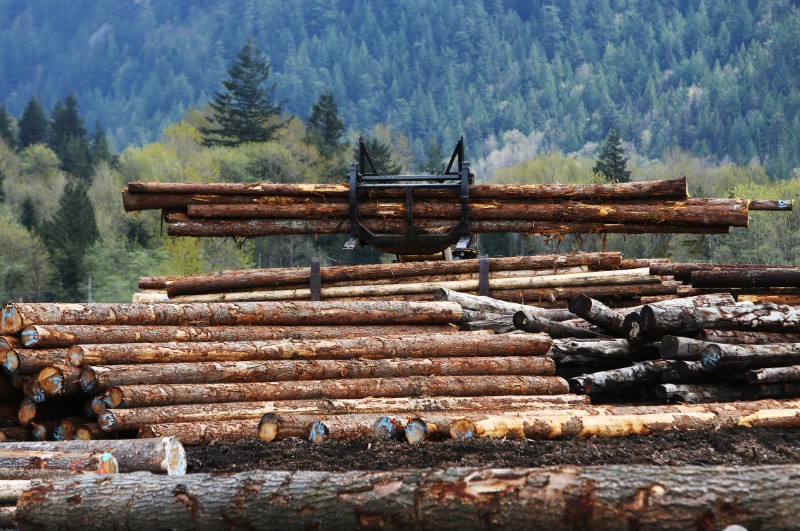By David Lawder
WASHINGTON, Aug 16 (Reuters) - The United States and Canada have failed to settle a festering trade dispute on softwood lumber ahead of talks to modernize the North American Free Trade Agreement (NAFTA), but will keep the lumber negotiations on a separate, parallel track, officials from both countries said.
U.S. Commerce Secretary Wilbur Ross had been pushing for a lumber deal before Wednesday's start to NAFTA talks to avoid complications from the decades-old dispute.
But both U.S. lumber producers and Canadian officials say they are not close to completing a quota deal that would limit Canadian lumber mills to a specific percentage of the U.S. market.
"We're still a ways apart. I think the NAFTA is going to go ahead and get started without us," Joe Patton, vice president of Westervelt Lumber in Tuscaloosa, Alabama, told Reuters.
U.S. lumber producers are seeking a "clean quota" deal that would limit Canadian producers' share to a level at or below a yet-to-be-negotiated share of the U.S. market - a principle that U.S. and Canadian negotiators agreed last year.
Zoltan van Heyningen, executive director of the U.S. Lumber Coalition, said that Canada has insisted on exceptions to a straight quota deal that could lift Canadian producers' market share well above its current level.
"Thus far, everything that we understand that Canada has tabled constitutes an at-or-above market share agreement," he said.
Canadian sources familiar with the softwood lumber talks said it was impossible to predict when there would be a lumber deal and that there were no plans for any softwood discussions on the sidelines of the NAFTA negotiations.
The lumber talks are aimed at reaching a negotiated settlement of U.S. anti-dumping and anti-subsidy charges against Canadian producers that have resulted in preliminary duties of 17 percent to 31 percent on Canadian lumber. EYED
U.S. producers have long accused Canada of unfairly subsidizing its lumber producers through low fees for timber cut on public lands. U.S. producers get most of their timber from private land, where costs are higher.
Canadian Foreign Minister Chrystia Freeland said on Monday that she thought the lumber talks would continue "in parallel" to the NAFTA negotiations.
"We don't want just any deal and the Americans know that. We want a deal that is good for Canadians," Freeland said.
James Rockas, a U.S. Commerce Department spokesman, said that Ross would continue to seek a negotiated settlement to the dispute until it issues final anti-subsidy duties and anti-dumping duties - deadlines currently scheduled for Sept. 7.
"Once Commerce announces a final determination on countervailing and/or anti-dumping duties, a softwood lumber agreement would have to be negotiated under other authorities," he said.
The last lumber quota deal in 2006 was negotiated by the U.S. Trade Representative's office - the same agency leading the NAFTA talks with Canada and Mexico.
The hefty duties on Canadian lumber come at a time when rising lumber prices are causing concern among U.S. home builders, suppliers and their investors, with companies frequently mentioning them as pressuring margins
Hilla Sferruzza, chief financial officer at Meritage Homes Corp MTH.N , told investors on the company's Aug. 1 earnings call that the company was hesitant to forecast much upside for gross margins because of the tight lumber situation, which she said was driven by the tariffs on Canadian lumber and more recently by wildfires in Canadian timberlands.
"We are cautious due to potentially rising lumber prices that could pressure margins and the continued tight labor supply," Sferruzza said.
